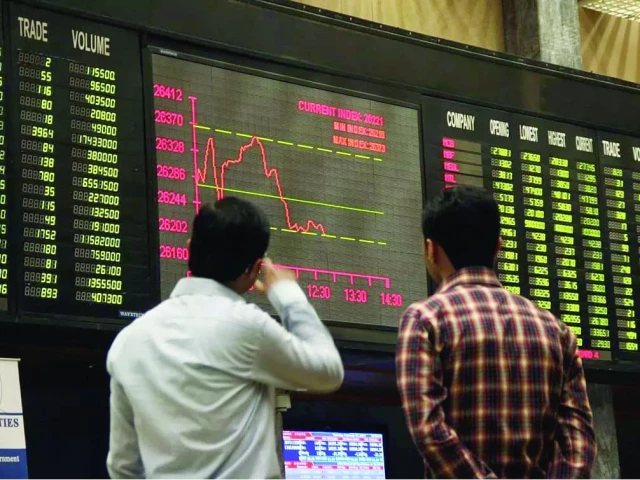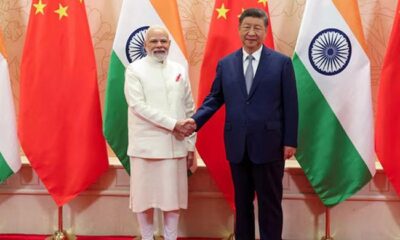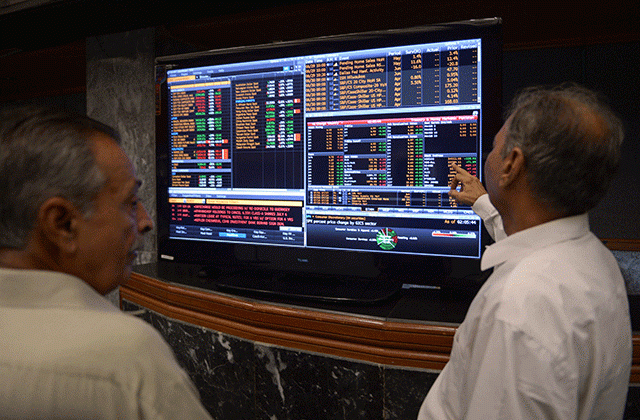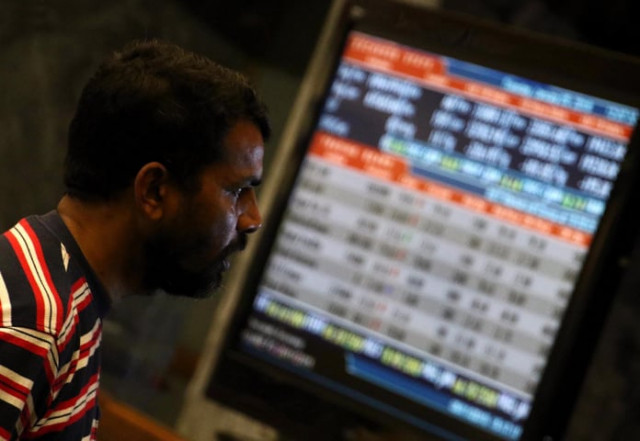Business
PSX smashes historic 162,200 | The Express Tribune

The Pakistan Stock Exchange (PSX) delivered yet another powerhouse performance today, with the benchmark KSE-100 Index rocketing 2,976 points—a robust 1.87% day-on-day gain—to close at an all-time high of 162,257 points.
This milestone underscores the market's extraordinary resilience, driven by broad-based buying across key sectors and bolstered by a cascade of positive macroeconomic and geopolitical developments.
Investor participation remained robust, as total volume on the All-Share Index (ALLSHR) reached 1.71 billion shares. WTL dominated turnover charts with 450 million shares traded, followed by KEL with 112 million, and CNERGY at 73 million shares, said Ahmed Sheraz of KTrade Securities Ltd.
The market continues to display remarkable resilience, supported by improving corporate earnings and growing investor confidence in Pakistan’s broader economic outlook.
Sentiment remains buoyant amid a series of landmark developments, including the recently signed Pakistan–Saudi defence agreement, the announcement of a circular debt retirement plan aimed at easing pressure on the energy sector, and a high-profile meeting between Prime Minister Shahbaz Sharif and US President Trump, signalling stronger international engagement.
These developments have reinforced optimism around Pakistan’s economic and geopolitical positioning, fueling sustained interest across sectors.
Source link
Business
Irdai fines Reliance General Insurance over ‘commission’ – The Times of India

MUMBAI: The Irdai on Friday, fined Reliance General Insurance Rs 1 crore in Hyderabad for routing unauthorised payouts through marketing and awareness expenses that amounted to disguised commissions. The penalty follows Irdai’s examination of transactions across FY19, FY20 and FY21. According to the regulator, the insurer channeled payments to brokers, agents, corporate agents and unlicensed entities under labels such as consumer awareness, marketing and advertising.
Business
Govt registers 144olive startups | The Express Tribune

.
ISLAMABAD:
Pakistan has registered 144 olive startups as part of a decade-long government initiative aimed at developing the olive sector.
Olive Promotional Programme National Project Director Dr Muhammad Tariq told Wealth Pakistan that the sector had recorded rapid growth over the past 10 years due to sustained government backing.
“Ten years ago, when the government started this programme, we had only one entrepreneur. Today, we have 144 startups and entrepreneurs. It is a very fast-growing sector,” he said.
Tariq noted that the government’s continued support had played a central role in transforming the olive sector into a viable agro-industry. The federal minister for national food security has also taken steps to strengthen the sector by pursuing Pakistan’s full membership at the International Olive Council. “Hopefully, there will be progress within three months,” he said.
Business
Airlines cancel more than 1,200 flights ahead of winter storm. Here’s what to know

A traveler near a departures board at Newark Liberty International Airport (EWR) in Newark, New Jersey, US, on Monday, Nov. 24, 2025.
Victor J. Blue | Bloomberg | Getty Images
Airlines canceled more than 1,200 U.S. flights on Friday ahead of a major winter storm that will put carriers to the test during one of the busiest travel periods of the year.
A winter storm warning is in effect starting Friday afternoon in New York City, New Jersey and Long Island, with snowfall totals potentially reaching 9 inches, most of it falling overnight, the National Weather Service said.
Over 350 flights, or more than a quarter of the day’s schedule, were canceled as of 1 p.m. Friday to and from New York’s John F. Kennedy International Airport, according to flight-tracking site FlightAware. More than 200 were also scrubbed at Newark Liberty International Airport in New Jersey, and more than 100 were canceled at Philadelphia International Airport.
American Airlines, Delta Air Lines, United Airlines, Southwest Airlines, JetBlue Airways and other carriers waived change fees for restrictive basic economy tickets and said they won’t charge a difference in fare for any other customers flying in and out of a host of airports in the Northeast U.S.
Customers must travel by the end of the year if they change their flights, the airlines said. Flying as early as possible is likely the best bet with few seats available during the busy Christmas week.
Airlines for America, the industry lobbying group, expects carriers to fly a record 52.6 million people between Dec. 19 and Jan. 5, with this Friday and Sunday among the busiest days.
Airlines generally cancel flights ahead of time for major weather events in the forecast, like blizzards or hurricanes, to avoid planes, connecting travelers and crews from getting stranded and worsening disruptions.
-

 Fashion1 week ago
Fashion1 week agoIndonesia’s thrift surge fuels waste and textile industry woes
-

 Tech1 week ago
Tech1 week agoT-Mobile Business Internet and Phone Deals
-

 Business1 week ago
Business1 week agoBP names new boss as current CEO leaves after less than two years
-

 Sports1 week ago
Sports1 week agoPKF summons meeting after Pakistani player represents India in kabaddi tournament
-

 Entertainment1 week ago
Entertainment1 week agoIndia streamlines visa rules in boost for Chinese professionals
-

 Sports1 week ago
Sports1 week agoUWCL grades for all 18 teams: Leuven get A+; Barça an A-, PSG fail
-
Sports6 days ago
Alabama turned Oklahoma’s College Football Playoff dream into a nightmare
-

 Entertainment1 week ago
Entertainment1 week agoRadiation fears rise after cracks found in $2 billion Chernobyl shield










